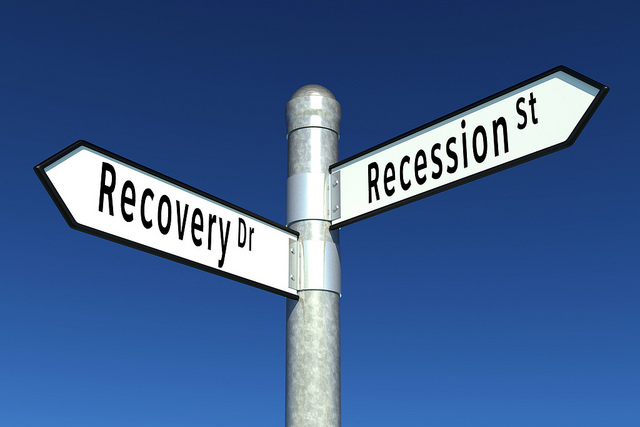Canada’s economy shrank in the first quarter by a whopping 0.6 per cent. Is this the beginning of a new recession?
Recessions of course are defined as two consecutive quarters of negative growth. Now we learn today that Canada’s economy shrank between January and March, the biggest decline in GDP since 2009, and the first contraction in the last four years. In fact, the economy contracted in all three months. It is even more dramatic when you think that Q4 2014 registered a growth of 2.4 per cent!
Of course, we don’t know yet if this trend continued into April and May, but if it has, as we should find out soon enough, it raises the prospect that we are heading for a yet another recession, and that Canada’s economy is not immune to the turmoil facing many countries. Given the problems the rest of the world is having, who knows what this potential recession will look like.
Taking a closer look at the statistics, we see that private sector investment declined dramatically as a result of the oil crisis, and that is certainly having repercussions in other sectors. Consumers are slowing their spending dramatically (slowest level since 2009), and governments are cutting spending as well. Do you see where I am going with this? Where is the growth going to come from in the coming months?
Exports? Well, today we also learn that the U.S. economy has also shrunk in the first quarter, by 0.7 per cent! This was revised downward from a previously reported gain of 0.2 per cent. With the U.S. economy contracting as well, our exports should also fall.
We seem to be dead in the water.
This is even more startling for two reasons.
First, recall that just last week, the Bank of Canada told us that Canada’s economy had stalled, and registered zero growth. Now we learn that the reality is actually worse. The Bank told us as well that Canada’s economy would rebound in the second quarter to 1.8 per cent, then to 2.8 per cent in the third quarter and 2.5 per cent in the fourth quarter. These numbers are increasingly looking like pie in the economic sky. These new numbers will probably lead to a decline in interest rates in July.
Second, most economists were expecting bad news, but not this bad. In fact, in a survey done by Bloomberg, the consensus among economists was for a small but positive growth of about 0.3 per cent. The latest figures, however, are sure to force many economists to rethink the path of Canada’s economy in the near and medium future.
If anything, what this shows is that neither the Bank of Canada nor economists really know what’s going on. Of course, it could be that the bad economic news in both Canada and the U.S. is the result of bad weather and other minor problems, as many pundits have rushed to the airwaves to say. But what these pundits have failed to do is to take a step back and look at the whole picture. The truth is we have not been doing well since the 2007 crisis. Rather than rethink economics, governments have continued with the same bad policies as before. And now the austerity chickens are coming home to roost.
Where do we go from here? Well these numbers are certainly troubling, but they should convince governments that now is not the time to tighten the belt. In fact, austerity is a contributing factor in this mess. When everyone is not spending, as is the case now, the government has a moral responsibility to step in and spend, and to support Canada’s flagging economy. As I have said many times, now is not the time to balance the budget. When your house is on fire, it is not the time to think about which new wallpaper for the dining room: you need to put out the fire first before it spreads and does even more harm.
Finally, well, there is this little thing called an election coming in October. If second-quarter numbers are also negative, as I am prepared to bet, then this spells sure trouble for the Harper government. It means that we will have an election on the heels of bad news. It could possibly be a game-changer.
Louis-Philippe Rochon is associate professor of economics at Laurentian University and founding co-editor of the Review of Keynesian Economics. Follow him on Twitter @Lprochon
Image: Chris Potter/flickr



